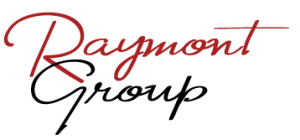The ‘Language of Leaders’
L. in L.E.A.D.E.R.S.H.I.P. Series
The ‘Language of Leaders’ is the ability to shape, frame, and sharpen the conversation. This is a career-defining and self-distinguishing set of skills. It’s really about contributing powerfully and adding value to any conversation. In the process, you maximize your impact, influence and results.
I know you’ve had this experience – you’re in a strategic planning session, a board meeting, participating in a group discussion or even at a dinner party . . .
- a discussion is getting derailed or is stalled, then someone frames the situation to bring it back on track and restore the group’s momentum for forward progress
- someone succinctly summarizes the collective thoughts of the group and brings amazing focus for clear actions
- someone asks the question that makes a profound noticeable difference, contribution and takes the conversation to a better level
Perhaps you’ve been the ‘someone’. Too often though, many of us leave a conversation either wishing we’d said what someone else said so brilliantly and effectively or kicking ourselves because we were thinking it but didn’t say it!
So what’s involved to be able to shape, frame and sharpen any conversation?
1. Be a First-Rate, Critical Thinker
Critical thinking is a way of thinking – its profound clarity of thought. Critical thinking is often heralded as the essential mental ability behind business success. Justin Menkes in his book Executive Intelligence, says “…critical thinking ability determines how skillfully someone gathers (assembles), processes (assess) and applies information in order to identify the best way to reach a particular goal or navigate a complex situation”. More simply put, it’s the skillful use of information to reach a conclusion.
Clear thinkers, those who simplify complexity are the ones that can get to the core of a problem and really make a difference. High-value executives bring a rigor, discipline, application of thought and inquiry and are capable of adapting to any situation. Critical thinking is a set of cognitive skills, and like a muscle to be exercised and honed, ‘represents the essential human capital advantage that today’s corporations desperately need’.
2. Ask the Better, Right Questions
Asking the right questions (and anticipating problems) is a key aspect of leadership. Exceptional leaders consistently ask perceptive questions that identify core issues. Mastering this skill starts with the awareness of what a powerful question really is. Typically they start with ‘what’ or ‘how’ (not ‘why’ or ‘when’). An easy read that can completely shift your ability to ask better questions is QBQ!: The Question Behind the Question, by John Miller. The response you get from asking powerful questions is immediate.
I’d like to suggest developing an arsenal of the better, right questions to have at your disposal. Here’s a list I have ready at all times:
- Are we asking the right question?
- Will the answer to that question get us where we want to go?
- What problem are we really trying to solve?
- What impact do we want to have?
- How do we want to resolve this?
- How do we want to proceed?
3. Speak Up
Don’t rob the world of your talent – find the courage to use your own voice. Remember, ‘bystanders do not make history’. The trick to contributing to a meeting (and looking good in the process) is to read the room, then contribute. Think about the timing of your remarks. Give the conversation space, gather and process information, then ask a question or make a comment that you feel will powerfully move the discussion. When you express your own view, speak confidently and in complete sentences.
To speak the ‘Language of Leaders’ is within your grasp – it takes consciousness of thinking and listening, discipline to consistently set up powerful questions and lots of practice. Take it on, and be seen and heard as the ‘someone’ who adds value wherever they are.
Next month I look forward to sharing the E. of the L.E.A.D.E.R.S.H.I.P. series – ‘Empower Your Change Leadership”
In facilitation and keynote speaking, the ‘Language of Leaders’ is central to the strategy development process and a key component of several speeches. Check out the keynote speaking and see how you can learn more and integrate it into your leadership.
~Victoria Raymont





Comments are closed.